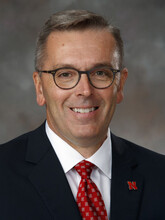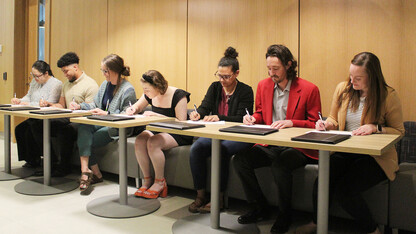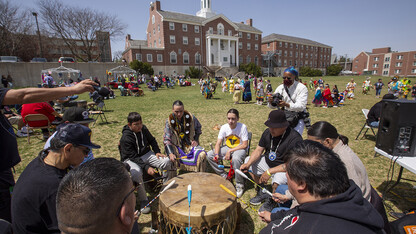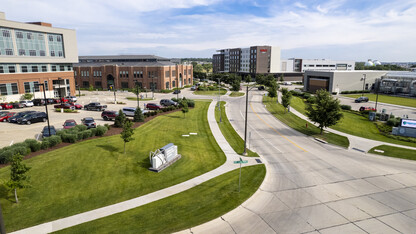· 5 min read
Campus climate survey gauges strengths, weaknesses
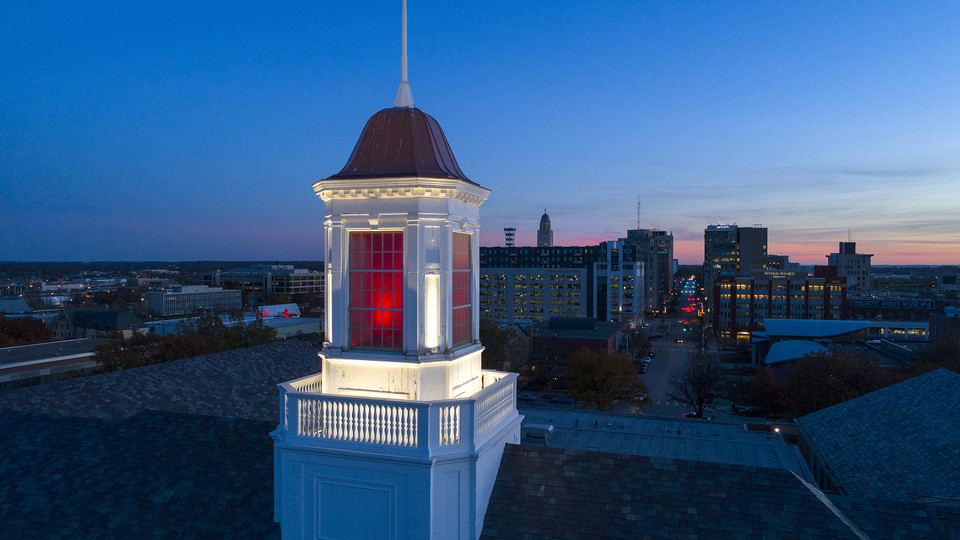
Chancellor Ronnie Green reaffirmed the University of Nebraska–Lincoln’s commitment to inclusiveness, freedom of speech and academic freedom in a Sept. 13 email to campus.
The message was in response to the findings of a broad survey reporting opinions that students, faculty, staff and recent alumni have about campus climate across all four institutions within the University of Nebraska system. The survey, conducted earlier this year, was completed by leading polling firm Gallup.
“The results of the survey largely indicate that our broad community of faculty, staff and students believe that the learning environment within the University of Nebraska is robust, positive, healthy and vibrant,” Green said. “In most cases, we find ourselves very much within the national norms of comparative data.”
The survey also points toward opportunities for improvement, Green said.
Gallup’s executive summary and full report are available online. Read Green’s message to campus.
Survey results affirm that the campus community believes that freedom of speech and academic freedom are fundamental values of the university system.
Green said the university should work to ensure the entire campus community feels free to express individual viewpoints regardless of race, gender, political ideology, religious beliefs, sexual orientation or socio-economic background.
“Discussion of differing views shouldn’t occur primarily on social media,” Green said. “We want our students to feel free, and to be encouraged, to have these conversations in person — in the classroom and among themselves.”
The chancellor called for leadership at the University of Nebraska–Lincoln to immediately review results of the survey with colleagues and be prepared to discuss the topic at his next townhall meeting.
“We’re going to dig deeper to better understand the extent of these issues at UNL and what can be done to address them,” Green said. “And, by the end of 2018, to develop actions to directly address specific areas where improvements are warranted.”
The results also reaffirmed the importance of ongoing campus initiatives. Those include:
The Nebraska Commission of 150’s focus on eight areas to create a strategic plan for the university;
Efforts to reinforce the importance of free speech, civil discourse and academic freedom;
Work to enhance diversity and inclusion on campus; and
Moving forward with the national search for a vice chancellor for diversity and inclusion.
“I look forward to the opportunity to have constructive conversations about how to further elevate our learning environment,” Green said.
The Gallup survey, administered electronically to faculty, staff and students in April and recent alumni in May, covered a range of issues related to campus climate and free expression. More than 4,400 students, 1,800 faculty, 3,600 staff members and 2,800 alumni completed the survey.
Key results of the campus climate survey include:
Nearly 80 percent of students said the racial climate among students is “good” or “excellent.” Black students were less likely to rate the climate as such. In a separate Gallup/Knight Foundation survey of U.S. college students, about seven in 10 rated their campus’ racial climate as “good” or “excellent.”
80 percent of faculty and 75 percent of staff members said the racial climate among faculty is “good” or “excellent.” Seven in 10 faculty and eight in 10 staff ranked the racial climate among staff as such. Black faculty and staff were about as likely to rate the climate as “good” or “excellent” as they were to rate it as “fair” or “poor.”
Nearly all students and alumni who lived in residence halls said they felt safe in those halls. Most faculty and staff reported feeling safe walking alone on campus and being in academic buildings at night.
Majorities of students, faculty, staff and alumni agreed or strongly agreed their campus is committed to promoting freedom of expression. Two-thirds of students and three-fourths of alumni said students and faculty respect free speech rights.
Majorities from each group surveyed said that members of 15 subgroups (by gender, race/ethnicity, etc.) are able to freely and openly express their views on campus.
Majorities of students, faculty, staff and alumni agreed or strongly agreed their institution is committed to ensuring an inclusive environment. One-third of students reported having felt uncomfortable because of something someone said about race, ethnicity, gender or religion.
Students were far more likely than not to say they feel comfortable having meaningful conversations with other students who hold different views on issues related to sexual orientation, religion, immigration, race and ethnicity, or political ideology. Strong majorities of students, alumni, faculty and staff members agreed or strongly agreed that they have had many opportunities to learn from others with different perspectives or backgrounds.
Half of students reported never or rarely having had a conversation with someone with whom they disagreed that led them to change their mind on an issue. One-third of students reported never or rarely seeking relationships with others who might challenge their understanding of the world.
Faculty and staff agree their leadership is creating a future they want to be a part of, and two-thirds said they would recommend their campus as a great place to work. They also expressed a desire for more clarity about the future direction of the university.
